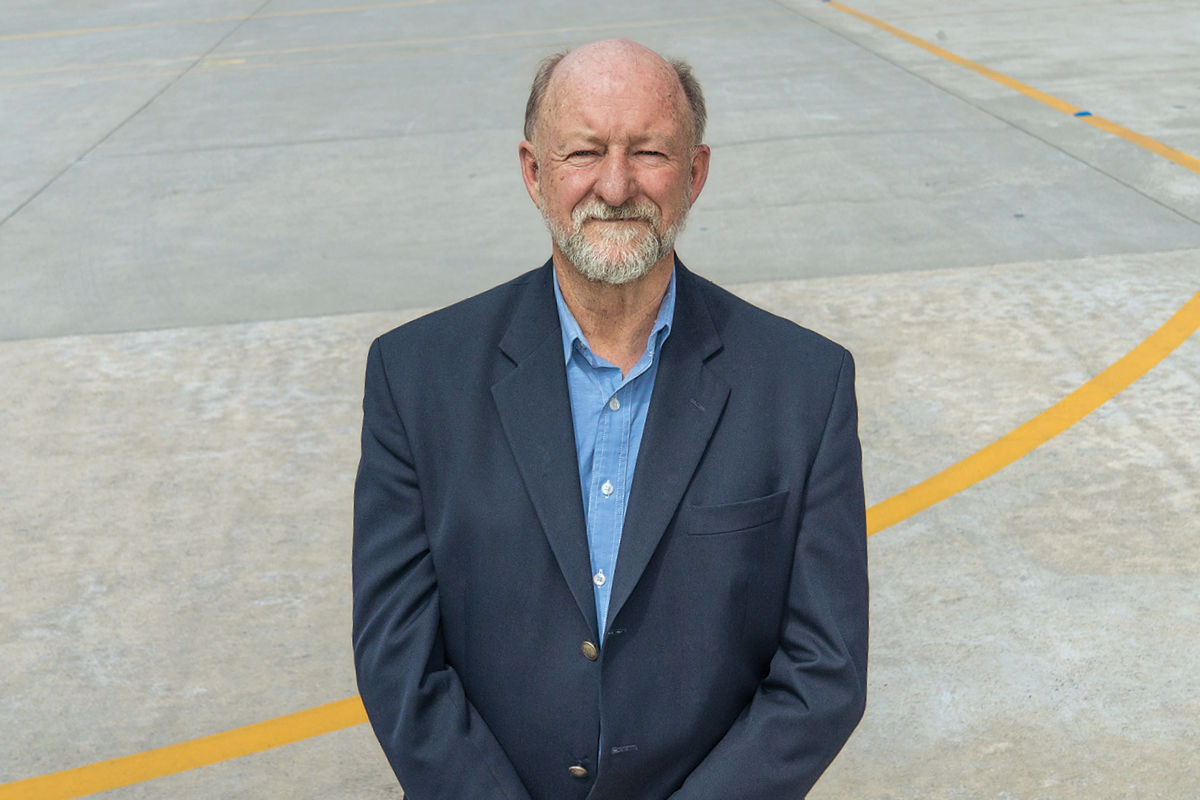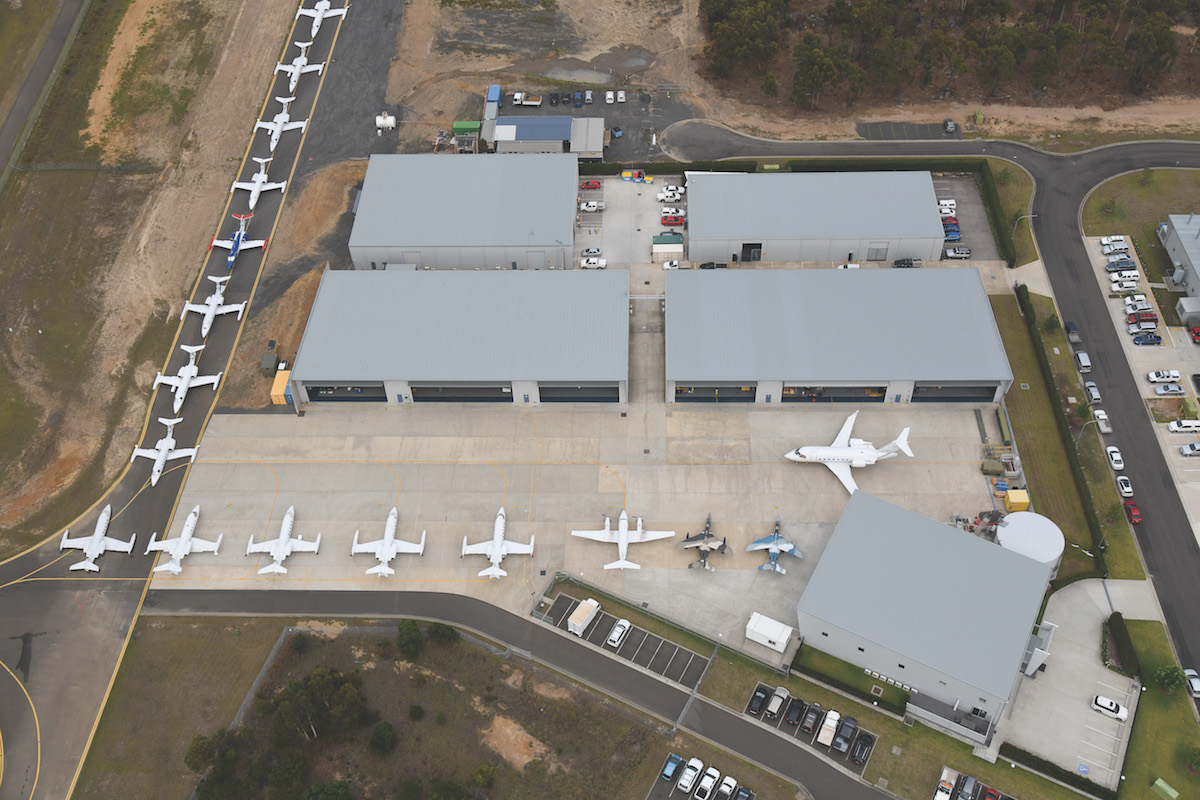Chris Sievers, CEO of Air Affairs Australia, lives by the motto: ‘The harder you work, the luckier you get’. And it was this hard work that led him to develop an aviation business that now provides training services to the Australian Defence Force (ADF).
Chris has spent all of his career in the aviation industry. He began as an apprentice sheet metal worker with Trans Australia Airlines (now Qantas) before joining Stillwell Aviation, the Learjet distributor for Australasia at the time. Chris worked with Stillwell Aviation and the Learjet Corporation in the US, to modify Learjets into special mission aircraft. “It was the first time a business jet had been used for a military training role,” Chris notes.

After six years with Stillwell, Chris moved to Nowra, New South Wales, to start supplying specialist aircraft training services to the Royal Australian Navy under a small support contract. “This involved target towing and supply of the equipment maintenance, support and operation,” he adds. “Over the following years, the Royal Australian Air Force and Australian Army also adopted that capability for their targeting requirements and this continues today.”
Following his time in this role, Chris established Air Affairs in 1995. The company provides manufacturing, engineering and maintenance services for various types of aircraft. It also owns and operates a fleet of Learjet and King Air aircraft, providing air training services for the ADF, bushfire reconnaissance agencies and adhoc services around the world. The business is based in Nowra and has an engineering facility at the aviation technology park next to HMAS Albatross – the home of the RAN’s Fleet Air Arm.
Where to next?
In the coming years, Air Affairs Australia’s plan is to consolidate the business and how it operates. Once that is complete, Chris plans to increase its workforce to 200 people and ramp up its presence worldwide. “We are very excited to be providing the services we provide today and we will establish more facilities and position ourselves as a global provider of these specialist training services around the world.”
Having spent more than 40 years in the aviation sector, Chris says one of the most significant challenges he has faced over the years is finding qualified and experienced staff. “We became aware of the challenges in Defence training departments around the world where they typically have a two-year turnover of staff,” he explains. “Consequently, subject-matter experts were continually moved on and the expertise was lost, but as civilian contractors we continued to train our staff and they remain within the company.”
This is one of the main reasons Air Affairs continues to provide these training services to the ADF. “We were one of the first commercial support programs for the ADF and, today, the use of civil contractors is widespread and successful around the world,” Chris comments. “It provides enormous cost savings to the Defence department while maintaining expertise and these essential training services. We have brought innovation and efficiencies to the ADF because we are forward thinking, not constrained by big business or government processes, and are in regular contact with all the service providers around the world.”
We have brought innovation and efficiencies to the ADF because we are forward thinking, not constrained by big business or government processes, and are in regular contact with all the service providers around the world.”
And it’s not just the ADF that Air Affairs is supporting. It has a strong relationship with US-based Kratos Defence and Security Solutions, and has introduced unmanned aerial vehicles to the ADF. “We are also providing, under a two-year trial, fast jet adversary training services with a large Canadian military jet provider to the ADF.”
For Chris, one of the best parts of his role as CEO of an aviation services company is being able to secure contracts that bring work to Australia. “Being Australian owned and operated is very important to me,” he says. “And I know from 40 years in the aviation business that Australia does it as good as, if not better than, any other country. I’m probably biased towards ‘better’ because international customers now contact us for equipment, aircraft operational advice.”

He also mentions the responsibility required as CEO to ensure a business grows in a sustainable way. “Being involved from day one requires you to be engaged with not only your own people, but also with other markets and even competitors around the world,” he explains. “It allows you to understand how best to continue to provide these specialist training services and gives you visionary ideas for the future, both for the company and the customers. It is a demanding role and by choice, I have embedded myself in all parts of the business, because I want to grow a culture that is successful and respectful.”
Chris adds that, as a leader, he never expects anyone to do anything he’s not willing to do himself. “That has helped build that respect, and a strong and capable team within the company to consolidate and grow Air Affairs into the future,” he says. “It takes dedication and patience to get where we are today and that can only happen with commitment and support from a dedicated team.
It requires innovation, belief in each other and a ‘can-do attitude’ to overcome the many obstacles one faces when growing a business today.”


